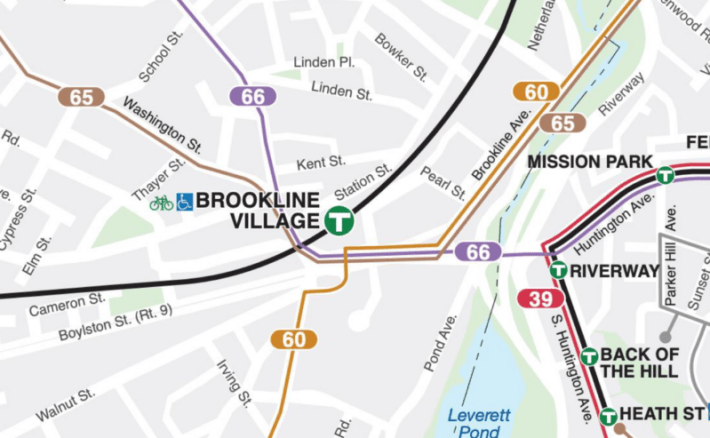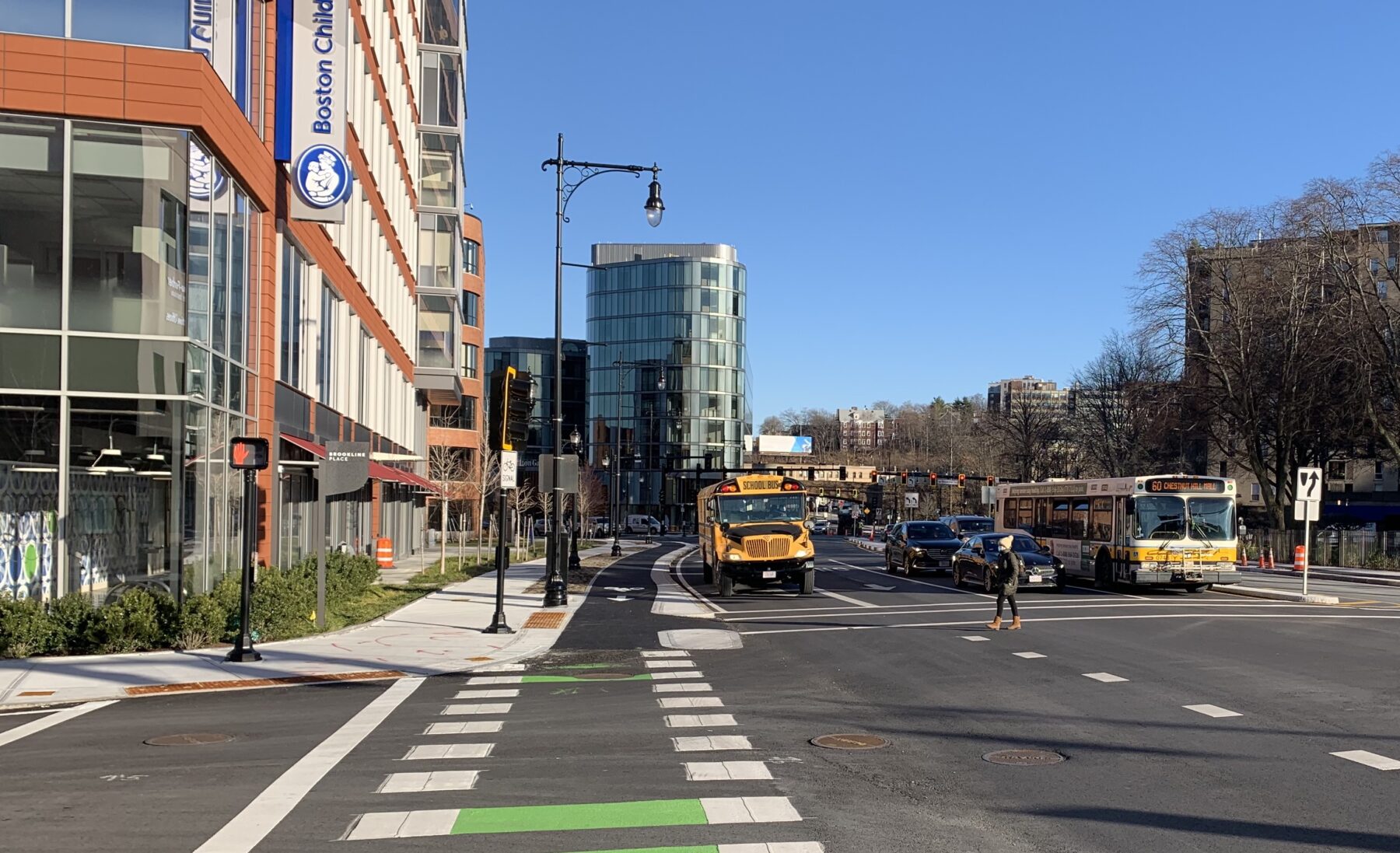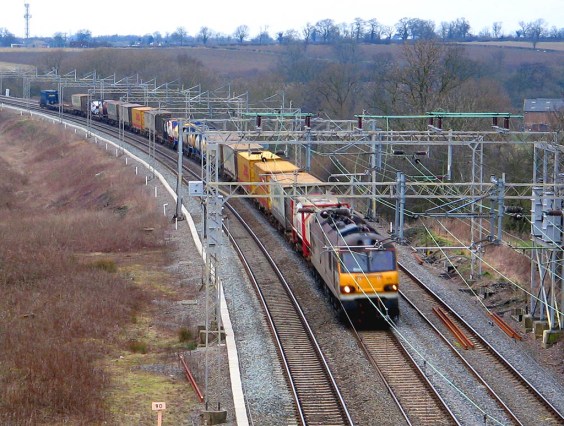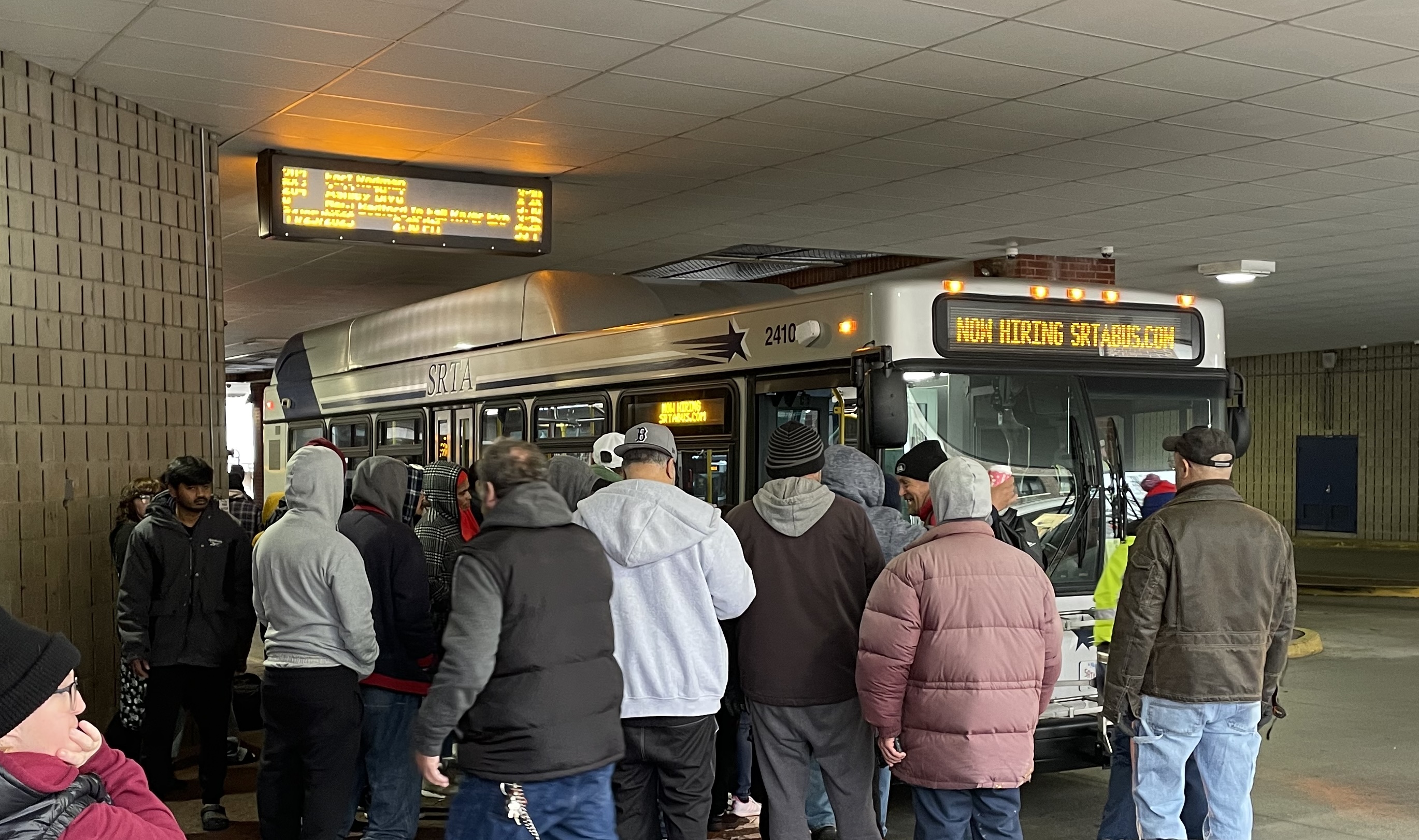This story originally appeared on Brookline.News, an independent, nonprofit news organization dedicated to providing comprehensive local news coverage for Brookline.
After years of debate, Brookline and the MBTA have finalized an agreement to try out a bus-only lane for a year on a busy stretch of Route 9/Washington Street 9 in Brookline Village.
The Gateway East Bus Priority Lane, first proposed in 2020, is set to launch in the coming months. The MBTA will paint one lane red in each direction between Station Street and the Boston border and label them for buses only.
The project was designed to help several MBTA bus lines, the 60, 65 and 66, speed up in what the transit agency says is a major bottleneck along their routes.
The town has acknowledged that faster-moving buses will mean slower-moving cars.
“There are some significant traffic impacts,” said transportation engineer Dan Martin at a Select Board meeting last week.
He estimated that the change will add four or five minutes of time to drivers’ trips through the intersection, depending on the time of day. The buses in both directions will save two to four minutes off of their trips.

Proponents cite benefits for town and T
Town officials say the project is a way to improve the public transportation system and work towards Brookline’s sustainability goals by encouraging residents to take public transit.
“I think it will be slightly irritating, but completely tolerable,” said Select Board member Miriam Aschkenasy. “If we take our commitment to sustainability and climate change seriously, then we have to be a little inconvenienced.”
“Bus lanes have been a part of the region since at least 2018,” said Brian Kane, chair of Brookline’s Transportation Board. “Some of us think it’s time for Brookline to join our neighbors in the region, giving bus riders a fair shake at having a decent trip.”
The project targets the 66 bus, which runs from Nubian Square in Roxbury to Harvard University in Cambridge, cutting through Brookline on the way.
The 66 transports 13,500 riders a day, and is one of the MBTA’s most used bus routes.
Kane says he believes in the project and he thinks it will work.
“It is being done with paint. We’re not moving curbs, there’s no infrastructure involved. And there’s no unique cost to the town, this is all being paid for by the MBTA,” he said. “I do think that trying this with a good faith effort … is the right thing to do at this time.”
In addition to his role on the Brookline Transportation Board, Kane held senior roles at the MBTA for 10 years and serves as executive director of its advisory board.
Neighbors worry about traffic on side streets
When the project was first proposed, it was the subject of contentious debate.
The rancor has died down, but some neighbors say they’re still worried about what the anticipated backups will mean for them.
“I know that those who support the project are looking to create more equity and to positively impact climate change,” said Frances Shedd-Fisher, who lives on Walnut Street. “I just think that choosing the Route 9 corridor for those goals is unrealistic.”
She said she worries about slowing down the main artery into Boston from the west, as well as diverting traffic to smaller streets like her own.
“As much as we might like to get rid of a lot of the cars, I don’t think that is going to happen any time soon,” Shedd-Fisher said.
Faith Michaels, who also lives near the intersection, said she thinks the neighborhood will bear the brunt of traffic, for “what I think is a very small return.”
“Brookline Village will come to a standstill,” she said. “It’s already terribly impacted as it is.”
What’s next
The project is officially moving forward after the Select Board agreed on a memorandum of understanding with the MBTA. The project does not have an initial start date, but the MBTA will be working on installing new signal equipment and painting the bus lanes over the next few months. They are targeting a late spring start, said Erin Chute, the town’s commissioner of public works.
As the one-year pilot goes on, they will collect data on transit times, traffic flow, and the experiences of car drivers and bus riders on the route, Chute said.
That data will “help the town make informed decisions as to whether or not to adopt a permanent bus priority lane,” Chute said.






